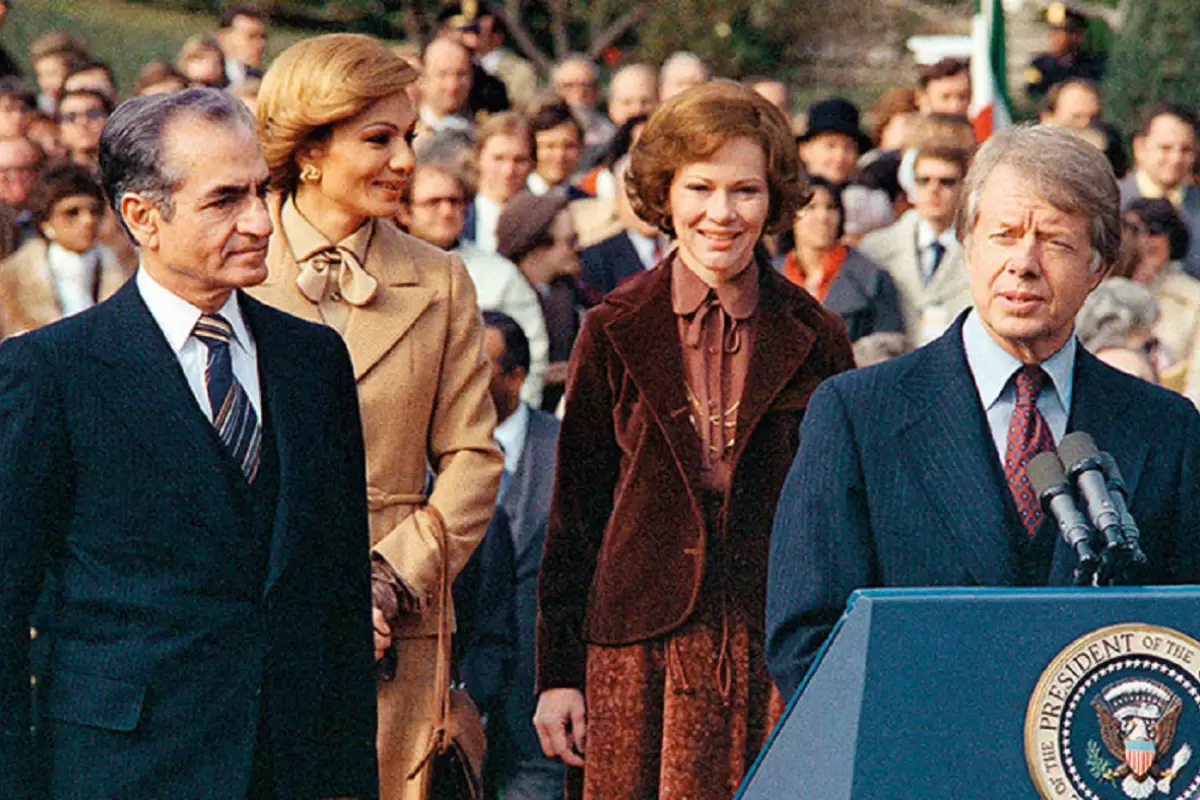Carter and the Shah of Iran: From the Island of Stability to Downfall
WANA (Dec 30) – Exactly on this day in 1977, Jimmy Carter made an unprecedented 19-hour Christmas visit to Iran and expressed support for Iran’s Shah with this statement: “Thanks to the Shah’s leadership, Iran is an island of stability!”. Now, On December 30, 2024, Carter passed away at the age of 100.
This support came at a time when only three governments backed the Shah of Iran after the events of the September 8 massacre, an incident that became a turning point in the Iranian people’s struggle and led to the weakening of Mohammad Reza Shah, his army, and his government. These three governments were Egypt, under the leadership of then-President Anwar Sadat; the United Kingdom; and the United States, under Jimmy Carter’s administration.
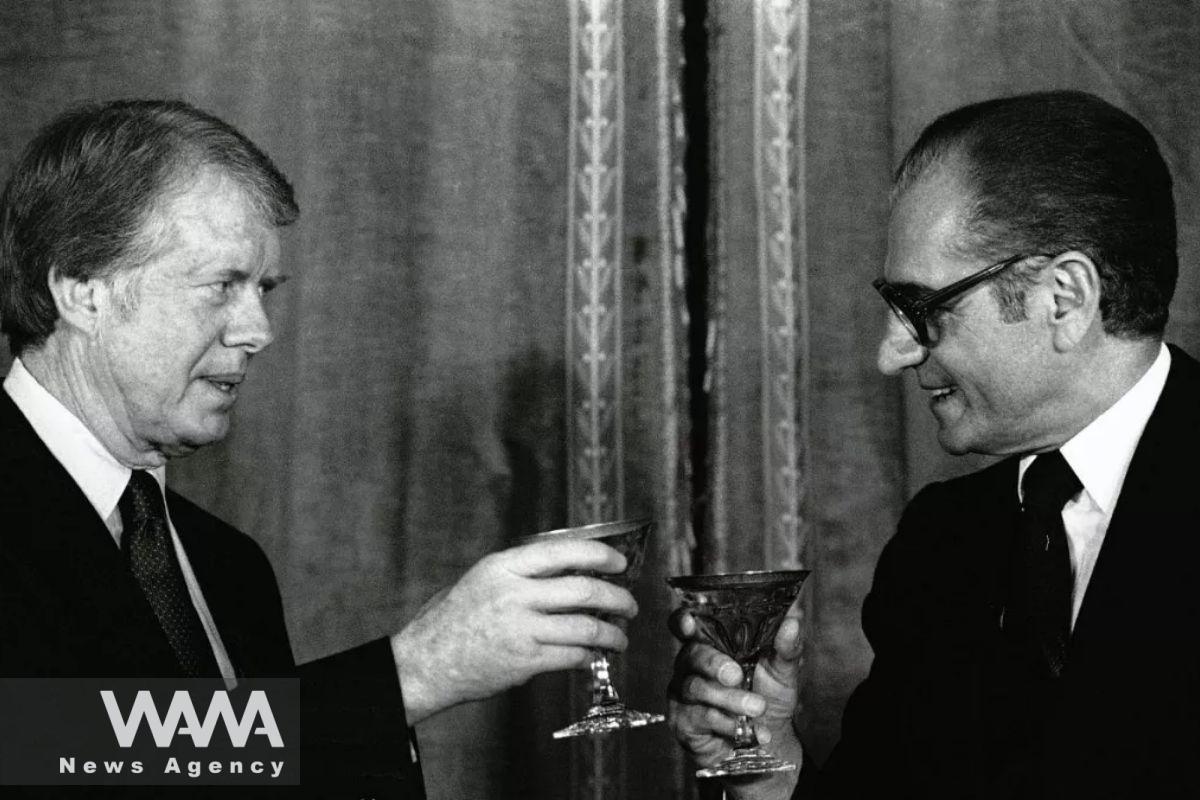
Iran’s Shah and Jimmy Carter. Social media/ WANA News Agency
The story became more interesting when Carter, despite his campaign promise not to support authoritarian regimes, in practice signed the largest military contracts with the Shah of Iran. He even sent General Huyser to Iran at the last moment to assess the possibility of a coup.
When the Shah decided to flee the country in 1979, Carter initially denied his entry into the United States to protect the safety of Americans present in Iran. However, under pressure and lobbying efforts—such as those by David Rockefeller, then-chairman of Chase Manhattan Bank, and Ardeshir Zahedi, Iran’s Foreign Minister and its last ambassador to the United States—the Shah was eventually allowed entry into the U.S. This decision, however, did not come without consequences for the United States.
Less than two weeks later, on November 4, 1979, Iranian students, who had vowed to avenge America’s acceptance of the Shah, seized the U.S. Embassy in Tehran, taking more than 50 embassy staff hostage for 444 days.
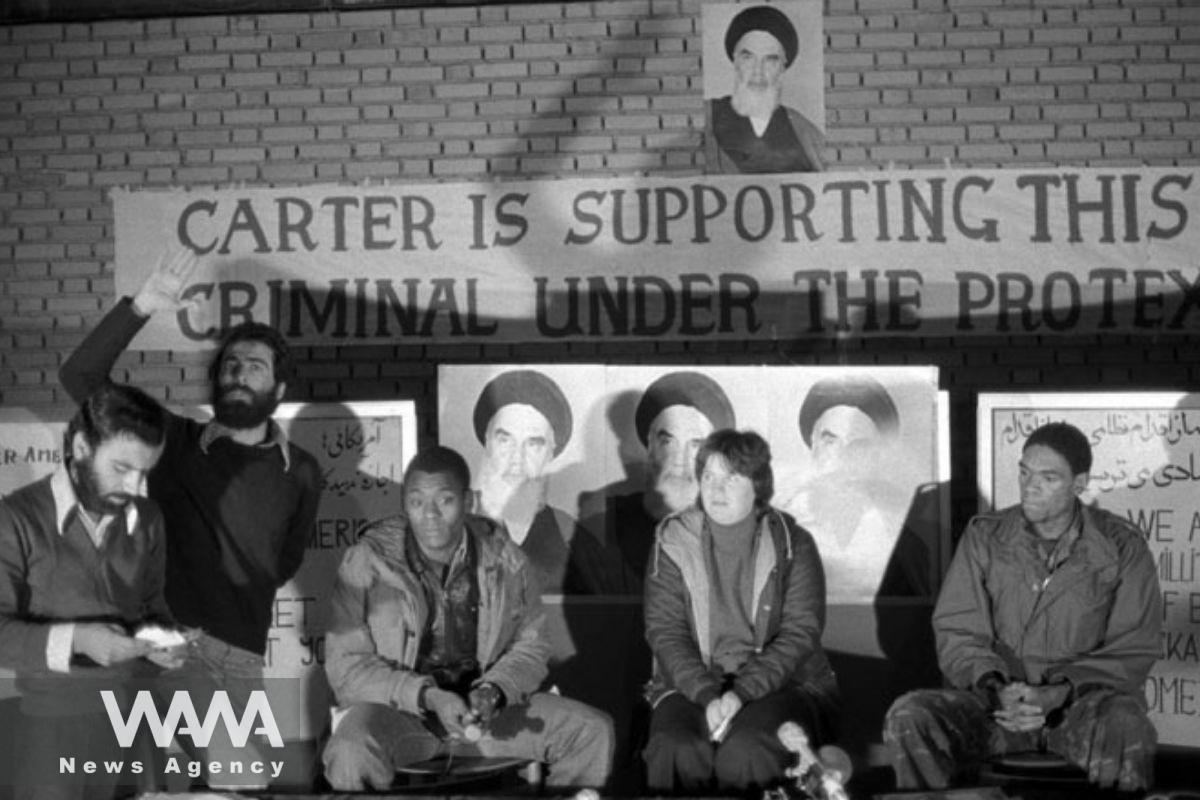
The Seizure of the U.S. Embassy by Iranian students. Social media/ WANA News Agency
Ultimately, the deposed Shah of Iran was treated in a hospital in the United States under the alias “David Newsom,” as his French and British doctors disagreed on the treatment approach.
After Carter’s visit and his explicit support for the Shah, Mohammad Reza Pahlavi made a major mistake. He published an article under the pseudonym “Ahmad Rashidi Motlaq” in the newspaper Ettelaat titled “The Red and Black Reactionaries,” which insulted Ayatollah Khomeini, Iran’s late leader.
Confident in Carter’s support, the Shah launched attacks on his opponents, including both left-wing and right-wing factions. Dariush Homayoun, the Minister of Information at the time, opposed the publication of the article, but Hoveyda, the Minister of the Royal Court, informed him that it was the Shah’s order. No one took responsibility for writing the article, but it provoked widespread public anger and drove people to the streets.
Carter became the first U.S. president to serve only a single term in office. He lost his re-election bid, with his defeat largely attributed to the U.S. Embassy hostage crisis and the failed rescue mission in Tabas, which significantly undermined his political credibility. Due to these failures, Carter repeatedly issued threats against Imam Khomeini and the Iranian Islamic Revolution.
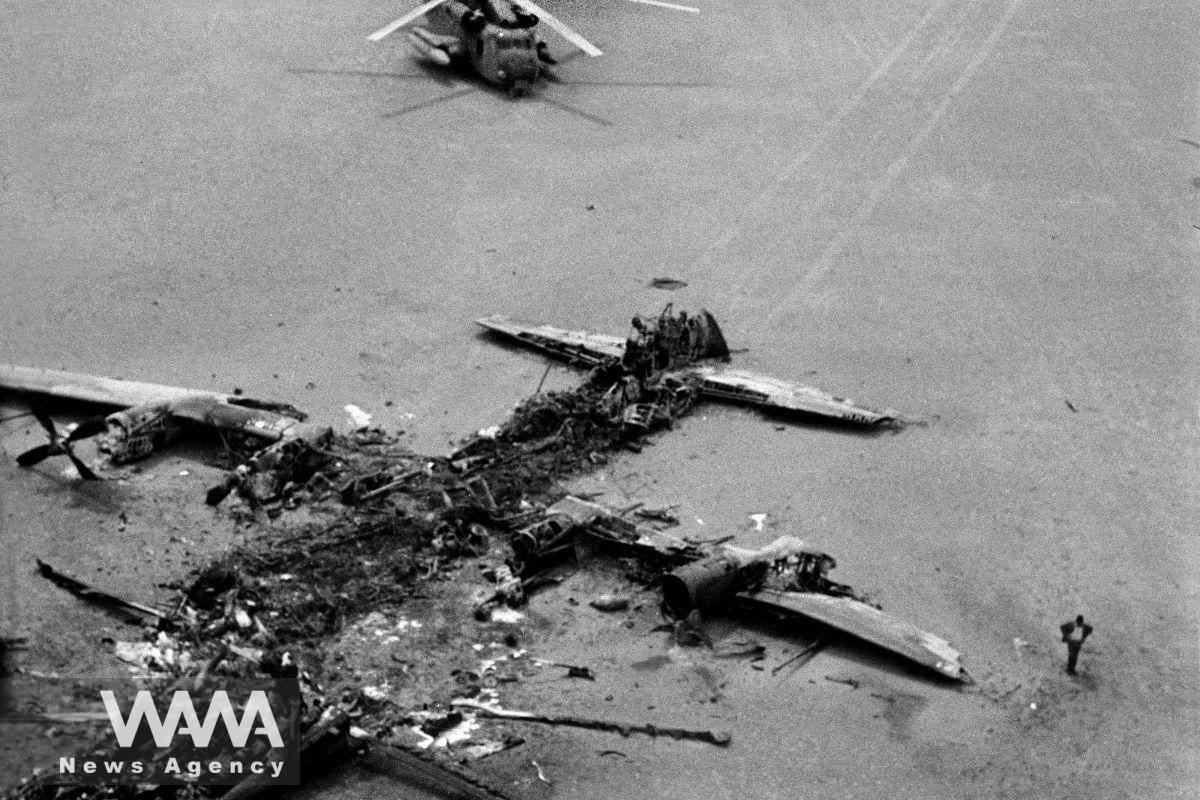
The wreckage of the American plane that was destroyed by a sandstorm during the Eagle’s Claw operation, known in Iran as the Tabas Operation. Social media/ WANA News Agency
Operation Eagle Claw, known in Iran as the Tabas Operation, was a military mission conducted by the U.S. Army’s Delta Force on April 25, 1980, to rescue American hostages held at the U.S. Embassy in Tehran. During the operation, the American forces, after establishing themselves in the Tabas desert and before proceeding towards Tehran, encountered a sandstorm that disrupted the mission and forced its cancellation.
Following the failure of the Tabas operation, Imam Khomeini delivered several sharp responses and speeches against Carter, including one in which he said:
“I have repeatedly stated that Carter, in his pursuit of re-election, is willing to commit any crime and set the world ablaze; the evidence of this continues to emerge one after another. Carter’s mistake lies in thinking that through these foolish maneuvers, he can deter the Iranian nation—who is willing to make any sacrifice for its freedom, independence, and dear Islam—from its path, which is the path of God and humanity.”
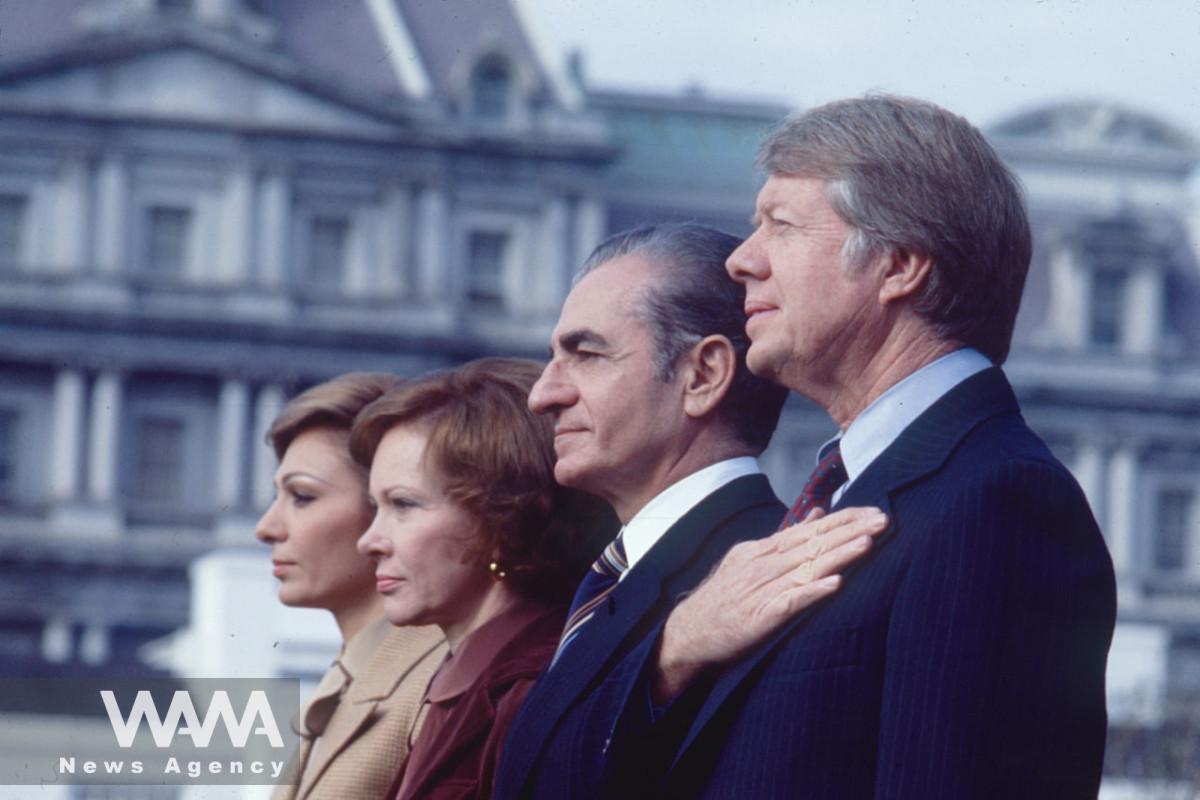
The Passing of Jimmy Carter on the Anniversary of His Visit to Iran
WANA (Dec 30) – Jimmy Carter passed away at the age of 100, coinciding with the anniversary of his visit to Iran in 1977. Today, December 30, 2024, the news of Jimmy Carter’s death, the 39th President of the United States, was announced. Two years after his election, Carter, accompanied by his wife and […]

